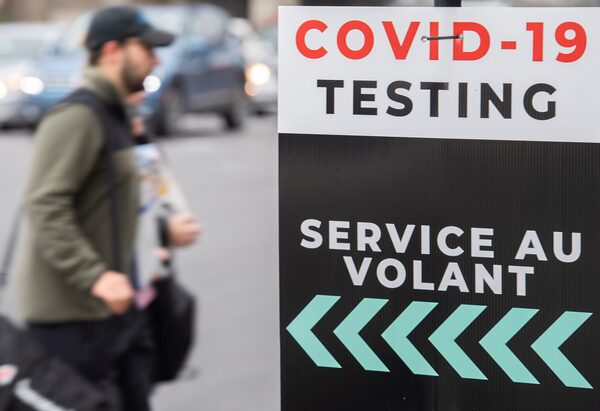
Under the Occupational Health and Safety Act in Alberta, every employer must ensure the health and safety of their work environment.Graham Hughes/The Canadian Press
The question
My employer instituted a new policy that requires staff to submit the results of an antigen test for COVID-19 every week. But they won’t pay for the testing. The cost of these tests is adding up and I’d rather not spend the money every week. Should my employer be paying for the tests if they’re making it a new requirement of the job?
The first answer
George Huang, partner, Guardian Law Group LLP, Calgary
Traditionally, employers cannot require employees to pay for items related to their employment such as supplies and equipment. For the employer to suddenly require the employee to pay for COVID-19 testing can be argued as constructive dismissal because the employer is unilaterally changing the terms of the employment contract.
However, the law in the area of employment relating to COVID-19 is in flux. The assumption is the individual in question is not vaccinated and the employer is requesting a COVID-19 negative test result weekly from the employee to attend work. Under the Occupational Health and Safety Act in Alberta, every employer must ensure the health and safety of their work environment. Thus, the employer has a duty to prevent the spread of COVID-19. Unfortunately, there is no statute, regulations or case law dictating whether the employer should pay for the COVID-19 rapid tests for unvaccinated employees. Some employers in Alberta have agreed to pay for the COVID-19 rapid testing of their unvaccinated employees for a set period.
Furthermore, the answer can vary significantly depending on whether the employee is a part of a union or whether the employee has a medical exemption. Unions have their specific contracts regarding vaccinations and employers have a duty to accommodate bona fide medical exemptions, such as allowing the employee to work from home or paying for the COVID-19 rapid testing. The law in this area is constantly changing and we suggest individuals consult legal advice to suit their particular facts.
The second answer
Catalina Rodriguez, lawyer, Forte Law Corporation, Surrey. B.C.
There is no clear law that would indicate who needs to pay for the weekly testing. However, the employee should ask the employer if they would accept proof of double vaccination instead of the cumbersome weekly test. If the employer says no and insists on the weekly testing, it is only fair that the employer pays for the test and possibly, that they allow for the testing to be done during working hours.
If the employer had a vaccination policy by which only if you cannot or do not want to get vaccinated, you have to get tested, the answer is different. If the reason not to get vaccinated is due to a disability or a sincerely held religious belief, under human rights law it is likely that the employer has to pay for the testing. If the reason is any other (lack of trust in the science, not enough information, etc.), then the employee has to pay for the testing out of their own pocket, or face progressive discipline and even termination of employment. With the new guidance from the federal government around the issuing of record of employments, there is the possibility that people who do not wish to get vaccinated and are terminated as a result may be denied employment insurance benefits.
In a unionized environment, a “get tested weekly for COVID-19” policy would likely be the subject of a grievance for not meeting the “reasonable” test – an employer can implement any policy as long as it is reasonable. Given that proof of double vaccination would likely meet the same purpose of ensuring the health of the workplace, the need for constant testing may not be the most reasonable measure. Depending on the industry, the grievance may or may not be successful. That would be highly dependent on the facts.
Have a question for our experts? Send an email to NineToFive@globeandmail.com with ‘Nine to Five’ in the subject line. Emails without the correct subject line may not be answered.
Stay ahead in your career. We have a weekly Careers newsletter to give you guidance and tips on career management, leadership, business education and more. Sign up today.